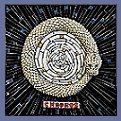|
The London Review of Books for 5 May 2005 featured three Rilke poems by Seamus Heaney, advertised on the cover. I thought I would try to make my own translations before reading Heaney’s, to see what I could learn by example, and to gain an insight into how a professional poet sets about it, as well as to demonstrate to myself how much I might be missing in my first reading of the poems.
With Leishman’s, Jessie Lemont’s and C.F.MacIntyre’s versions, an old Cassell’s German dictionary, and the neat Insel Verlag, 1962 Gesammelte Gedichte, I made versions of two of the poems. The third, Die Brandstätte, I had to take from Heaney, though later I traced the Leishman after all. When I compared both versions I revised my After the Fire (and changed the name) and after I had read Heaney I understood more and revised the other two poems.
Rewriting the translation is almost obligatory for English readers of Rilke. Leishman is a delight but clearly even odder than Rilke himself. Perfectly rational statements in the German become transformed in remarkable ways. The best alternative translations are in American English, just as valid of course, but equally alarming to my generation in their idiosyncrasies and to me bizarre colloquialisms. There is a summary of available versions in The Oxford Guide to Literature in English Translation edited Peter France.
Rilke, though he knew no English whatever, translated Elizabeth Barrett Browning. It was Lawrence’s early poems inspired by Rilke that first led me to Leishman when I worked in Nottingham in my early twenties. Does this imply a Lowellised ‘Imitations’ or Pound’s Propertius and ‘Rihaku’? Perhaps it is a truth universally unacknowledged that the poetry is what survives translation. Though one of my books for a desert island would be Stanley Burnshaw’s The Poem Itself, and he wouldn’t agree.
Heaney knows how to make a finished poem – the key with Rilke, and the hardest thing to do. I feel in relation to him (and to Ted Hughes) like someone called to jury service, listening to a great advocate. It is a theatrical experience, the projection of a voice telling a story. Given the transgression, that is the case. What the jury has to do is to make a decision. ‘No advance knowledge of the law is required’ – the poem will tell you everything. The juror is not called on to stand up and argue, just to say yes or no. But to every word? Mallarmé’s dream, ‘céder l’initiative aux mots’. Stilt Press versions are never the case; they are written-up notes from the trial.
These three poems exemplify Rilke’s skill at presenting action in the setting of landscape. His ability to capture interest with an entry and exit figure, to set perspective, foreground against distance and horizon, then to see beyond the horizon, is breathtaking. And of course as the figure of a poet he is beyond compare, not even Rimbaud or Catullus can beat that. Those letters. The wild joy of Rilke. .
And then again he is German; the Orpheus sonnets sing: poetry’s Four Last Songs, the Vier ernste Gesänge, the Wesendonck set, even the cavatina. Can this perhaps be death? An old man might well hope so, prey to the desire to clutch.
Rilke offers the translator the perfect work ethic, eyes down on the dictionary, the imagination in pursuit of vision. He has Henry James’s ‘good eye for a subject’, constructing innumerable paths between the quotidian and the infinite, always courteously. The reader becomes Fleda Vetch for a while. ‘“Isn’t it too dreadful?” “Horrible — horrible!” cried Mrs Gereth with a laugh..’. ‘A passion for the exquisite is the cause’.
What is to be learnt from this labour? And why bother to print half a dozen copies? ‘If I had been asked before I started I would have replied’. James tells us,
“Well, you’ll see” — confident meanwhile (as against the appearance or imputation of poor taste) that interest would spring as soon as one should begin really to see anything. That points, I think, to a large part of the very source of interest for the artist: it resides in the strong consciousness of his seeing all for himself.
(preface to The Spoils of Poynton)
And with translations, as with photos, each reveals the original through the eyes of a different photographer, a different reader of the situation.
Alan Tucker
28 March 2006

|

